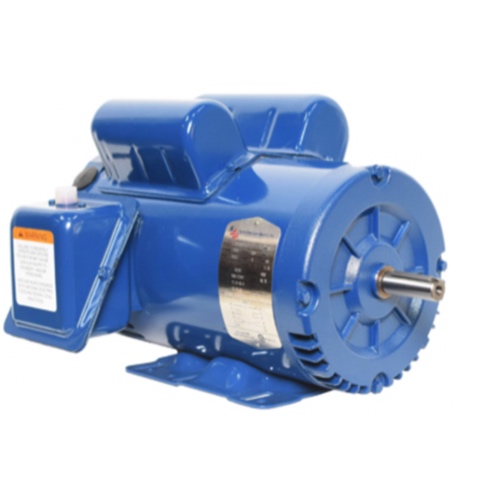Compressor Duty Motors

RSP Supply carries a full line of compressor duty motors engineered specifically for air compressor applications. These motors deliver the high starting torque, durability, and continuous-duty performance required to power compressor pumps efficiently and reliably. Compressor duty motors are designed to operate for extended periods under high load conditions. Built to handle the demanding nature of compressor systems, they feature robust construction, reinforced bearings, and advanced insulation to withstand heat, vibration, and mechanical stress. These motors are available in single-phase and three-phase models for both stationary and portable compressor applications.
Many compressor duty motors include built-in thermal overload protection to prevent overheating during heavy use. Their design also supports straightforward installation and alignment with compressor pumps, reducing setup time and maintenance costs. With their long service life and dependable torque output, these motors are an essential component for maintaining reliable compressed air systems in industrial and commercial environments.
FAQs
Q: What is a compressor duty motor used for?
A compressor duty motor is used to power air compressors, providing the high torque and continuous operation needed for applications such as industrial air systems, workshops, and pneumatic equipment.
Q: How are compressor duty motors different from standard electric motors?
Compressor duty motors are specifically built for higher torque output and long-duty cycles, featuring reinforced construction to handle heat, vibration, and mechanical stress common in compressor applications.
Q: Do compressor duty motors have built-in thermal protection?
Yes, many compressor duty motors are equipped with thermal overload protection to prevent overheating and extend motor life during continuous operation.
Q: Are compressor duty motors available in single-phase and three-phase designs?
Yes, compressor duty motors are available in both single-phase and three-phase configurations to suit different power systems and application requirements.
Q: Can compressor duty motors be used in portable air compressors?
Yes, compressor duty motors are used in both stationary and portable air compressors due to their durability, torque output, and efficient performance under variable load conditions.
Why Buy Compressor Duty Motors from RSP Supply
RSP Supply offers compressor duty motors from trusted manufacturers, built for reliability, performance, and efficiency. With expert support we help keep your air compressor systems operating smoothly and effectively.

